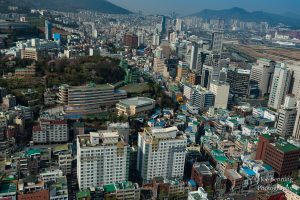The Clinton, Bush and Obama Administrations all pretty much followed the same policy with respect to North Korea, which was to attempt to bribe North Korea into giving up its nuclear program in exchange for food and cash. Any remote chance of a policy success died the day that the U.S. turned on Libya’s Gadhafi, who was summarily executed by U.S. backed rebels in that nation’s civil war, after he had surrendered his nuclear weapons. Hillary Clinton engineered that particular piece of statecraft under the newly discovered doctrine “Responsibility to Protect”.
And so now we are faced with a North Korea that is in the process of rapidly acquiring technology that will allow the hermit state to target American cities with nuclear-armed ICBMs. The Trump Administration, who, like the past three Administrations claimed to be leaning on China to rein in its North Korean client, insists that the current state of affairs is unacceptable, while it weighs the unpalatable options. In the meantime, the Washington Post announced that the latest missile test “…underscores the failure of Trump’s naïve approach to North Korea”. This, even though thus far Trump’s approach has been indistinguishable from that of his predecessors.
Up until now the received wisdom respecting the Korean Peninsula was that (1) North Korea’s leaders were crack-pots who nevertheless could not directly threaten the U.S., (2) China had an interest in reining in North Korea, but (3) had limited leverage where sanctions are concerned because a collapsing North Korea could destabilize China. That view is increasingly difficult to accept given the recent behavior of the players.
China talks a good game, but has actually done relatively little to rein in North Korea. More likely is that China is encouraging the North Koreans. Wait for the outlines of a deal whereby the North Koreans agree to “freeze” their nuclear program in return for the U.S. pulling back from the Korean Peninsula—and the South China Sea. The North Koreans will of course be lying, even as they solidify their position.
A U.S. pullback would greatly expand China’s regional power and leave Japan, South Korea and Taiwan vulnerable and exposed. China and Russia would be in a position to cooperate to push back against the West. While China expands its reach in the South China Sea, Russia would continue to pressure NATO, while adopting a more aggressive posture toward its “near abroad”. Iran, North Korea and Russia would expand cooperation as well.
The West is facing a time of great peril, and its most precious assets—credibility and resolve—are in doubt. Up until this point, the United States has had a deep bench of politicians and policy intellectuals to draw on when the going got tough. There are still plenty of extremely competent policy professionals in think tanks around the country. But it is hard to see where the political leadership is going to come from.
JFB

